- Home
- Janet Dailey
Nightway Page 12
Nightway Read online
Page 12
“No,” Lanna admitted.
“When the Americans began to settle this area, it was decided that all Indians would be confined to a reservation. The cavalry managed to force the Apache to surrender, but they couldn’t militarily conquer the Navaho. So they went out and killed all their sheep, burned their cornfields, and virtually starved them into submission when winter came. They were herded together to make ‘the long walk’ to Bosque Redondo, southeast of Santa Fe, the Navaho version of the Cherokee’s Trail of Tears. Four years later, they were given the wild, barren portion of their former home range—the Four Corners—to live on. Unlike many other tribes that have disappeared into extinction, the Navaho has multiplied—its population increasing.”
“You admire the Navaho, don’t you?” she realized.
“They are a unique people.”
“The plight of the Indian,” Lanna murmured.
John followed her train of thought. “We are the only people in the world who attempted to exterminate the natives who inhabited the land when we came. I guess I feel the same confusion every other American does. I keep asking myself: Why did it happen? Was it fear because we couldn’t understand their way of life, and because we didn’t understand it, we tried to destroy it? Where was our tolerance? Yet, the two systems were incompatible. They couldn’t remain unchanged and exist side by side. The Indian had no conception of land ownership, and the white lived by boundaries. Raiding and stealing was admirable behavior to the Indian and looked down on by the white. Conflict was inevitable. The world views were so dissimilar,” he concluded. “After that, the laws of nature took over, laws that dictate the strong must survive.”
“Yet I think we’ve learned that Indians had a greater respect for the land. Look at our environment and our struggle to restore it,” she offered.
“Yes, and there is a movement to return to the land, go back to the primitive way of life, but I can’t agree with that. Mankind doesn’t progress by going backward,” John insisted. “Even the Navaho believes the Road of Life is one-way. You can’t advance horizontally—only vertically.”
Their wandering route had brought them full circle to the exit of the museum. John pushed the door open for her and they walked silently out of the building. As they started across the parking lot to the stall where they’d parked the company truck, a groping hand caught at Lanna’s arm.
She turned and found herself staring into the red-rimmed eyes that focused on her through an alcohol haze. A red feather was tucked into iron-gray, luster-less hair, shaggy and unkempt. Drawn around his hunched and weaving shoulders was a tattered and dirty pink blanket.
“Cedar beads.” In a slurring voice, he held out a necklace, offering it to John. “You buy for lady? One dollar.”
Lanna recoiled from the foul and liquor-laden breath that blew from his mouth. The Indian stank of sweat, booze, and vomit. His attempt to stand straight and tall only added to the ludicrous spectacle he made. Her gaze slid sideways, catching the look of pity in John’s face.
“No, thank you,” he refused.
“Cheap. Fifty cents,” the Indian insisted, thrusting the necklace closer for their inspection. “Genuine Indian necklace.”
“No,” John repeated.
The Indian swayed and made a concentrated effort to focus on John. “I know you?” he questioned
“I know you, Bobby Crow Dog.” The admission was made with a sad smile.
There was an almost visible light of recognition. “Laughing Eyes,” the Indian declared, “husband to White Sage.” Then he lapsed into a language that was an incomprehensible collection of guttural sounds.
John responded in the same unintelligible tongue. The exchange of conversation lasted a couple of minutes before John held up his hand to silence the Indian. “You are using hard words. It has been too long since I have heard them.”
“You should go home,” the Indian said.
“You should go home,” John countered and reached out to clasp the Indian’s hand in both of his.
“Where is home?” There were tears in the Indian’s bloodshot eyes, a lost look that was poignant.
“Take care of yourself,” John advised as he withdrew his hands. Lanna caught a glimpse of folded green paper left in the Indian’s palm and realized John had given him money. In the next second, his hand was gripping her elbow and guiding her away from the Indian. “It always happens,” he murmured in a weary voice. “Every time someone starts talking about the noble savage, an Indian like Bobby shows up—drunk, dirty, and selling cheap trinkets.”
“I know what you mean,” Lanna sighed. “It destroys the image, doesn’t it? It must be worse if you know them personally.”
“Yes. Bobby Crow Dog is a special case, but he epitomizes many of the problems the Navaho face—problems all Indians face. Thirty years ago, Bobby Crow Dog was in Hollywood making movies. The film people claimed he had the face of the ideal Indian. That was the era when the Indians were always attacking wagon trains. Bobby was never out of work, always had money in his pockets, and a lot of white friends. Unfortunately, he made the mistake of growing old. One day, there wasn’t anyone who wanted him in a picture. Bobby had abandoned the Navaho way to embrace the white man’s version of success.”
“When that success was gone, he had nothing to fall back on?” Lanna guessed.
“Exactly. It’s a common problem. Once traditional beliefs and restrictions are given up, they have to be replaced by something else. If all an Indian does is take on the white man’s freedoms without assuming any of our values or morals, there is nothing to support him, nothing to give him direction.” A furrow ran deeply across his suntanned forehead. “He has to achieve a balance between the Indian way and the white man’s. Somehow, he has to.” The last ended on a fervid note that drew Lanna’s wondering glance. But she could read nothing in his expression except a hint of strain.
The sun burned brightly, baking the pavement and making it hot beneath their feet. The yellow cab of the truck rose above the other cars in the lot. The intensity of John’s feeling on this subject pulled Lanna’s thoughts back to the Indian, a contemporary of John’s. Laughing Eyes, he had called him, yet Lanna saw so much unhappiness in his eyes.
As they neared the pickup, she lifted her gaze to John again. “White Sage. Is that what the Indians called your wife?”
Beads of perspiration had gathered on his forehead and upper lip. He seemed quite pale despite his dark tan. Her look began to narrow in professional scrutiny, concern surfacing as alarm bells rang in her mind.
“Yes.” He bit out an affirmative answer to her question. Its abruptness seemed to be a studied attempt to hide a wavering strength, but Lanna saw his hand trembling as it reached to open the passenger’s door for her.
“John, are you all right?” she demanded.
He more or less pushed her into the passenger’s seat. “I’ll be fine,” he insisted, then closed the door.
She watched anxiously as he walked around the front of the truck to the driver’s side. He was sweating profusely by then. Reaching into his pocket, he took out a small, square box. Lanna saw him slip a pill into his mouth before opening the door and sliding behind the wheel.
“Your heart?” she guessed.
“It’ll be all right.” John leaned back, resting his head on the seat’s neck rest and closing his eyes.
Instinctively, she reached for his wrist and located his pulse. “Sit quietly for a little bit,” Lanna instructed and watched the second hand of her watch.
“I loved her. I loved her so.” His voice cried with an inner anguish.
“Of course you did,” she agreed in a soothing tone. One part of her registered surprise at his statement. She had been under the impression that he didn’t love his wife. Obviously he had once, since the statement had been in the past tense. Whatever memories he was recalling were upsetting him, and Lanna had no intention of pursuing the topic.
“Have you ever been in love, Lanna?” Haunted blue
eyes regarded her through tired, gray-brown lashes.
“Don’t talk, John.” The pill had already begun to work its chemical magic.
“I’ve never known such a boundless joy,” he murmured. “It was like a light being turned on that chased away every lonely shadow. But when you lose it, the suffering goes on forever.” There was a long silence. Lanna was conscious of the strength flowing back through him. “I’ve always been a selfish man, Lanna.”
“I find that hard to believe.” Her concern had lessened sufficiently to allow her to mock him affectionately.
“It’s true.” He smiled at her, and his color returned. “I have always done what was easy, taken the smooth road. I always expected someone else to solve my problems, then wondered why I didn’t have any control over the results.”
“If you have finished running yourself down, why don’t you move over and I’ll drive?” Lanna refused to listen to his self-deprecating statements.
“You haven’t heard anything I’ve said, have you?” John accused.
“Not a word.” She stepped out of the truck and walked around to his side. “Move over. I’m driving.” When he hesitated, that stubborn male glint entering his eyes, Lanna warned, “I can be just as stubborn as you are, John Buchanan.”
“All right,” he conceded reluctantly. “You can drive … this time. But I’m okay now. Those pills always do the trick.”
But it left Lanna feeling uneasy. The aura of robust health was only an illusion. John was vulnerable. When they arrived at her apartment building, she let the motor run.
“Why don’t you let me drive you home? I can catch a cab back here,” she offered.
“I’m not an invalid. As a nurse, you ought to know that, Lanna.”
Releasing a long sigh, she admitted, “You’re right.”
“Do you know you might be the only person who cares—who really cares that I have a problem with my heart?” He gave her a considering look, a warmth softening the age-carved lines of his face. “And you care for no other reason than the fact that we are friends. I don’t think you realize how remarkable that is.”
“Regardless of what you think, I’m sure your family cares—your wife and your sons,” Lanna insisted.
“Are you?” He lifted an eyebrow. “I wish I was.” Before Lanna could comment on that defeated remark, John added, “I’ll see you Tuesday, unless you already have something planned.”
“No. Tuesday is fine,” she agreed. Then she climbed out of the pickup so John could slide into the driver’s seat.
On Tuesday, Lanna fixed dinner for them at her apartment. John’s mood was light, joking and laughing with her over dinner, as if to make up for his somber and poignant confidences of the previous Saturday.
As Lanna rose to clear the table, he offered, “Do you want some help with the dishes?”
“No, I can manage.” She stacked the plates on top of each other and gathered up the silverware. “You just sit there and finish reading your newspaper.” She glanced at his empty coffee cup. “Would you like some more coffee? Or how about some sassafras tea?”
He turned down a corner of the newspaper to look at her. “Sassafras?” he repeated with a skeptically raised eyebrow.
“Yes, sassafras. It’s marvelous stuff,” she insisted, smiling at his reaction. “It builds up the body.”
“And you’re a professional nurse,” he said, mocking her gently.
“We all have our little home remedies,” she laughed.
“I’ll pass on the sassafras.” John smiled and opened his paper again.
She carried the dishes to the small kitchen, which was separated from the living room by a breakfast-counter bar. Then she went back to the table to put the leftovers away. As she passed John’s chair, a column headline caught her eyes. Bending to read the story over his shoulder, she tucked a strand of darkly brown hair behind her ear.
“See something interesting?” John questioned with a sideways glance at her.
“This article on Faulkner and the controversy with the hospital about a conflict of interests. I heard Dr. Fairchild talking about it today on the telephone,” she explained while she skimmed the first paragraph of the article. “Faulkner’s on the hospital board and his construction company just happened to submit the low bid for the construction of a new wing.” A name leaped out of the newspaper print. “John! J. B. Faulkner owns Falcon Construction, the company you work for.”
“Yes, he does.” He nodded. “Personally, I don’t see what all the fuss is about. Why wasn’t this possibility of a conflict of interests raised when the invitations to bid were sent out to the contractors? I think it’s a case of a sore loser. The submissions were made by sealed bids, which were opened in the presence of all the hospital board members.”
“You have a point,” Lanna conceded. “But you also have to admit that it looks suspicious.”
“Only to suspicious minds.” His reply was sharp and quick.
She shrugged her shoulders, understanding the loyalty he felt toward his employer. “From all I’ve heard and read, Faulkner has fingers in just about every pie in town. He can afford to let somebody else have a slice now and then.” She held to her point of view without sounding argumentative.
John turned in his chair to send her a curious, twinkling look. “Have you got something against being rich?”
“No. I like to see the little guy get a break now and then, though.” She smiled. “This J. B. Faulkner sounds like a pretty ruthless character.”
“Oh?” He continued to study her with that same look, amused and indulgent. “How did you manage to learn so much about the man when you haven’t even been here a year?”
“He’s practically a legend in Phoenix.” There was a wryness to her smile. “I don’t care how large a city is; the minute you come into any town you hear all about the richest men. There are plenty of stories about Faulkner and how he bought acres of land around here for next to nothing, then sold it for a hundred or two hundred times what he paid for it. He cheated the original landowners out of a lot of money.”
John tipped his head back and laughed heartily. “He never cheated a soul. He paid the asking price. It just so happened that he turned around and sold it later for a handsome profit. The man had the foresight to see that this city was going to grow. He gambled that he was right, and the gamble paid off. I don’t call that a crime.”
“He didn’t have to cheat to win, did he? I guess I never looked at it that way,” she realized. “I think some people are born lucky. J. B. Faulkner must be one of them.”
“I don’t know about that,” John disagreed. “He might be lucky in some ways. I … I’ve heard he’s a lonely man. Money can buy power, influence, and favors, but it can’t buy friends. It can’t even assure him of the love and respect of his family.”
“I know you’re right. But when I’m driving down the highway sweltering in my little car and some air-conditioned Cadillac zips past me, I have a hard time feeling sorry for the people inside,” she laughed. “I’m too busy feeling sorry for me. What it amounts to is old-fashioned jealousy.”
“Now that is the most honest statement I’ve ever heard anybody make!” John folded the paper shut in a decisive action. “You have just won yourself a dish wiper.” As he followed Lanna into the kitchen, he noticed the book of wallpaper samples lying on the counter. “What’s this? Planning a little decorating?”
“Yes. I want some new vinyl paper for the bathroom, so I decided to give myself a birthday present.” She set the salad bowl down and flipped the book open to the sample she had marked. “What do you think of this one?”
“It looks nice.” But he barely glanced at it. “When is your birthday? You never mentioned it to me.”
“A week from Friday, but I’m pretending to forget about it. I’ll be twenty-six, and I think it’s time I stopped counting.”
“When you reach my age, that’s the time to stop counting,” John insisted dryly.
“Yes, we
ll, I’ve just about decided that I’m not going to have a husband to look after me when I’m your age, so I’d better start putting money away to take care of myself.”
“That’s not a bad idea,” he teased. “An old maid should have some money in her sock.”
“Thanks a lot!” She flashed him a look of mock anger, brandishing a tablespoon.
“What are you going to do to celebrate your birthday?”
“I’m open to suggestions. Will you come over for dinner?” Lanna invited.
“I have a better idea. I’ll take you out for a steak dinner.”
“You have yourself a date,” she said, accepting with a decisive nod.
Chapter IX
“White linen, candlelight, champagne. I didn’t expect all this, John.” The flickering flame brought a burnished glow to light Lanna’s mane of brown hair and glittered on the gold combs that sleeked it away from the sides of her face. She reached for the glass the waiter had just filled with the sparkling wine and lifted it in a salute to her table companion. “Thank you.”
“This is a special evening,” he reminded her in his warm, gravelly voice. “We have a birthday to celebrate.”
Lanna sipped at her champagne, laughing softly at the bubbles that tickled her nose. “It would be awful if I sneezed, wouldn’t it?”
“In very bad taste.” He clicked his tongue in reproval.
“I’m sure the maître d’ would frown in his haughty way,” Lanna murmured, eyeing the short man showing a couple to their table.
“He wouldn’t dare. I’d have him fired for spoiling your evening,” John threatened.
Returning the wineglass to the table, Lanna fingered its fragile stem. The pale, effervescent liquid in the glass was only a shade lighter than the amber dress she wore, the whipped cream material softly outlining her figure.

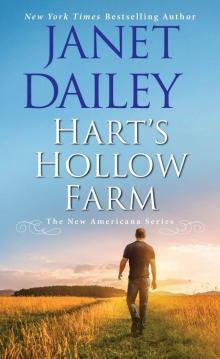 Hart's Hollow Farm
Hart's Hollow Farm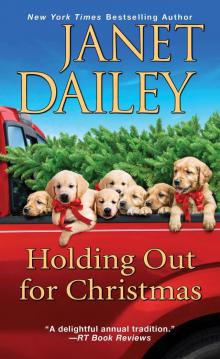 Holding Out for Christmas
Holding Out for Christmas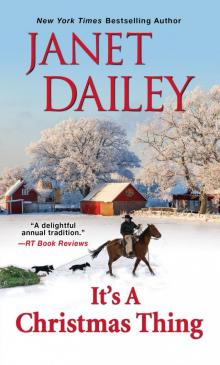 It's a Christmas Thing
It's a Christmas Thing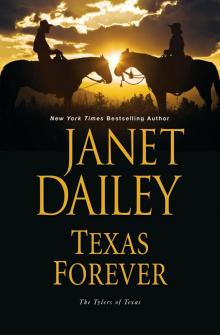 Texas Forever
Texas Forever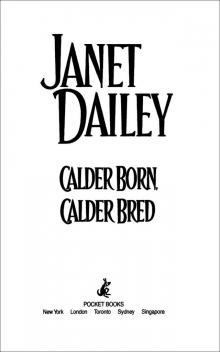 Calder Born, Calder Bred
Calder Born, Calder Bred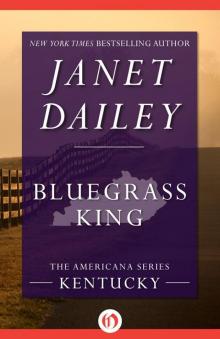 Bluegrass King (The Americana Series Book 17)
Bluegrass King (The Americana Series Book 17)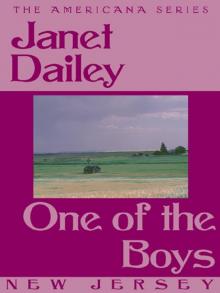 One of the Boys
One of the Boys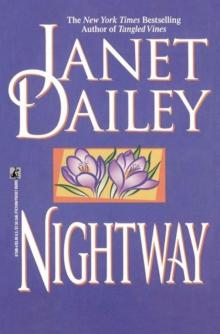 Nightway
Nightway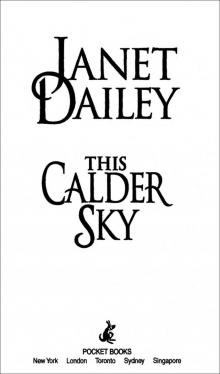 This Calder Sky
This Calder Sky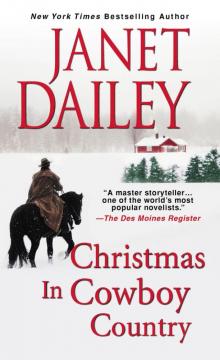 Christmas in Cowboy Country
Christmas in Cowboy Country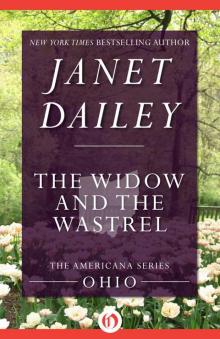 The Widow and the Wastrel
The Widow and the Wastrel Separate Cabins
Separate Cabins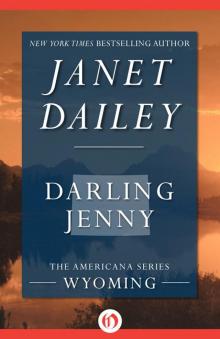 Darling Jenny
Darling Jenny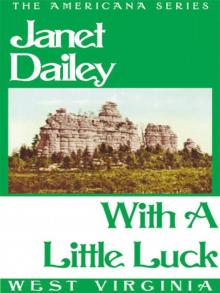 With a Little Luck
With a Little Luck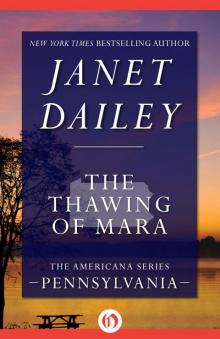 The Thawing of Mara
The Thawing of Mara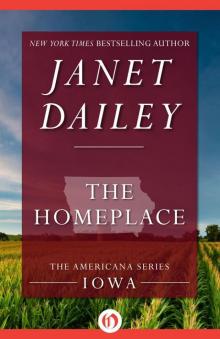 The Homeplace (The Americana Series Book 15)
The Homeplace (The Americana Series Book 15)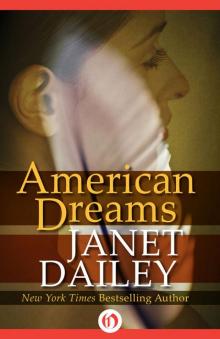 American Dreams
American Dreams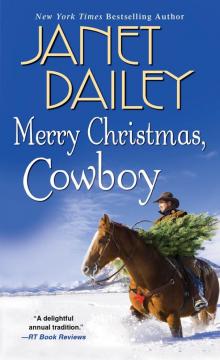 Merry Christmas, Cowboy
Merry Christmas, Cowboy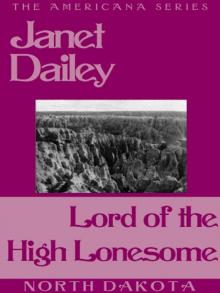 Lord of the High Lonesome
Lord of the High Lonesome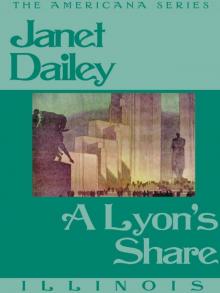 A Lyon's Share
A Lyon's Share After the Storm
After the Storm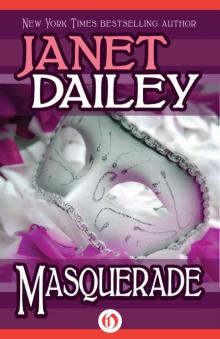 Masquerade
Masquerade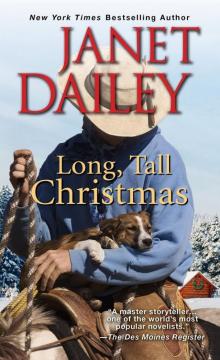 Long, Tall Christmas
Long, Tall Christmas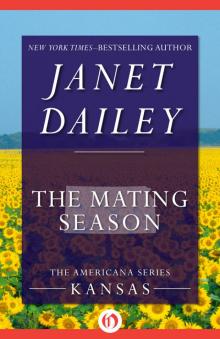 The Mating Season
The Mating Season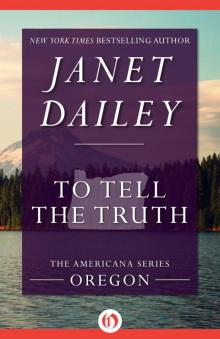 To Tell the Truth
To Tell the Truth A Land Called Deseret
A Land Called Deseret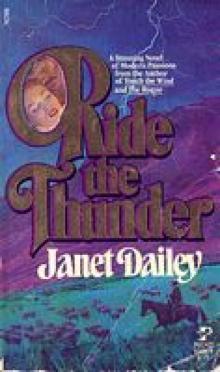 Ride the Thunder
Ride the Thunder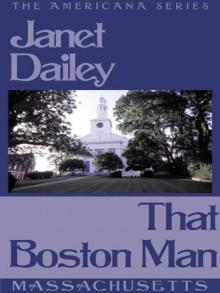 That Boston Man
That Boston Man Wild and Wonderful
Wild and Wonderful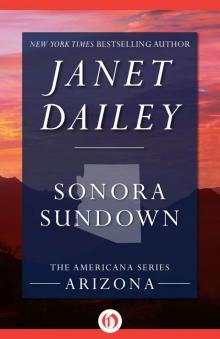 Sonora Sundown: Arizona (The Americana Series Book 3)
Sonora Sundown: Arizona (The Americana Series Book 3)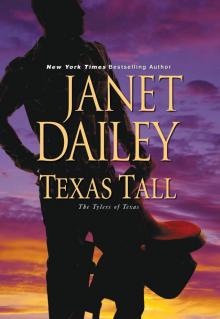 Texas Tall
Texas Tall Giant of Mesabi
Giant of Mesabi The Bride of the Delta Queen
The Bride of the Delta Queen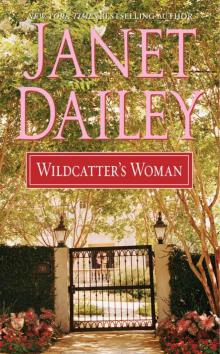 Wildcatter's Woman
Wildcatter's Woman Difficult Decision
Difficult Decision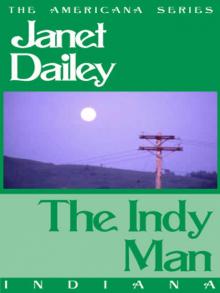 The Indy Man
The Indy Man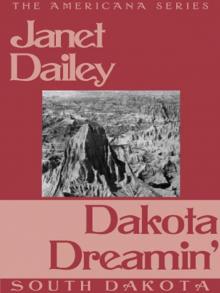 Dakota Dreamin'
Dakota Dreamin' Kona Winds
Kona Winds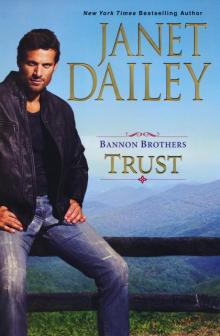 Bannon Brothers
Bannon Brothers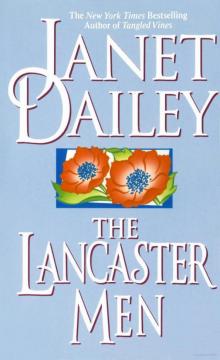 The Lancaster Men
The Lancaster Men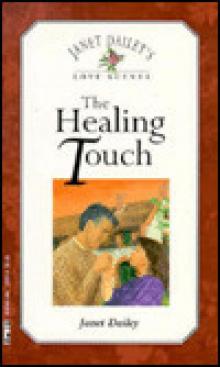 janet dailey- the healing touch
janet dailey- the healing touch Strange Bedfellow
Strange Bedfellow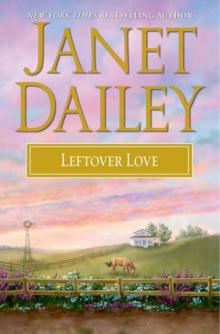 Leftover Love
Leftover Love Big Sky Country
Big Sky Country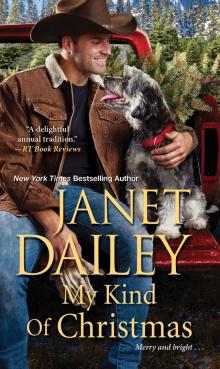 My Kind of Christmas
My Kind of Christmas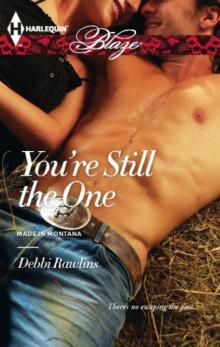 You're Still The One
You're Still The One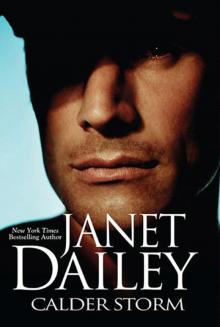 Calder Storm
Calder Storm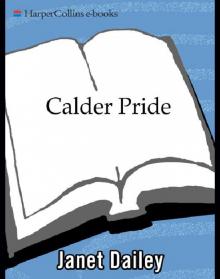 Calder Pride
Calder Pride Low Country Liar
Low Country Liar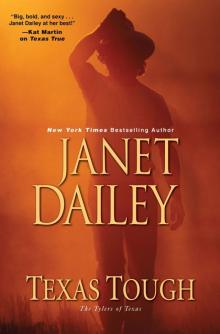 Texas Tough
Texas Tough Foxfire Light
Foxfire Light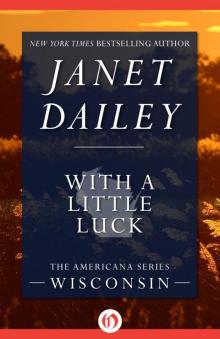 With a Little Luck (The Americana Series Book 49)
With a Little Luck (The Americana Series Book 49)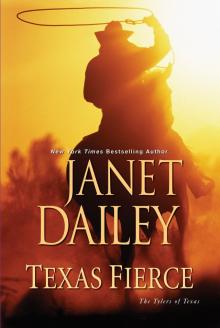 Texas Fierce
Texas Fierce Sentimental Journey
Sentimental Journey The Pride of Hannah Wade
The Pride of Hannah Wade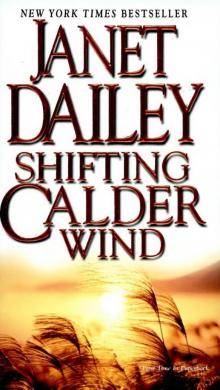 Shifting Calder Wind
Shifting Calder Wind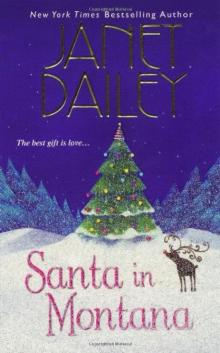 Santa In Montana
Santa In Montana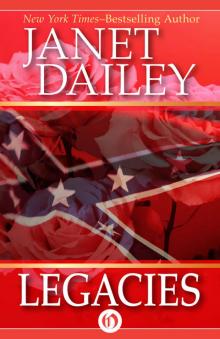 Legacies
Legacies Land of Enchantment
Land of Enchantment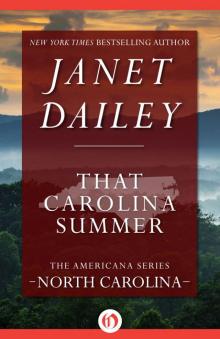 That Carolina Summer (North Carolina)
That Carolina Summer (North Carolina) Reilly's Woman
Reilly's Woman Refuge Cove
Refuge Cove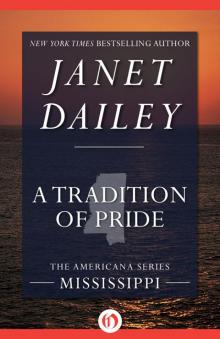 A Tradition of Pride
A Tradition of Pride Bed of Grass
Bed of Grass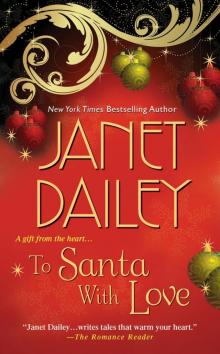 To Santa With Love
To Santa With Love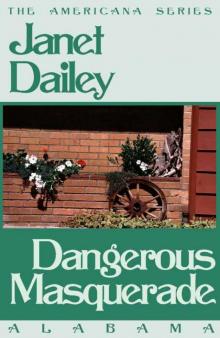 Dangerous Masquerade
Dangerous Masquerade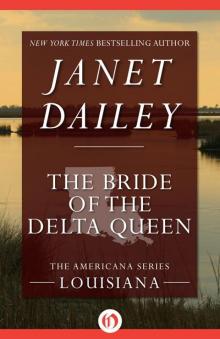 The Bride of the Delta Queen (The Americana Series Book 18)
The Bride of the Delta Queen (The Americana Series Book 18)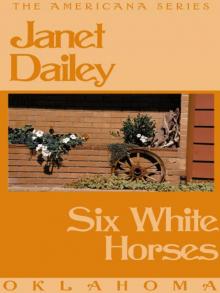 Six White Horses
Six White Horses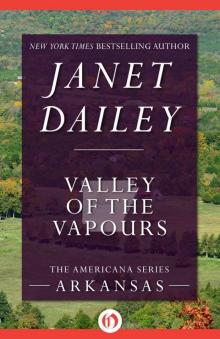 Valley of the Vapours (The Americana Series Book 4)
Valley of the Vapours (The Americana Series Book 4)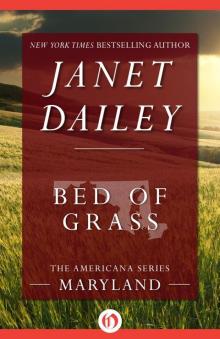 Bed of Grass (The Americana Series Book 20)
Bed of Grass (The Americana Series Book 20)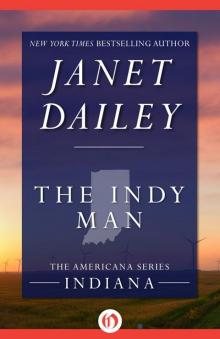 The Indy Man (The Americana Series Book 14)
The Indy Man (The Americana Series Book 14)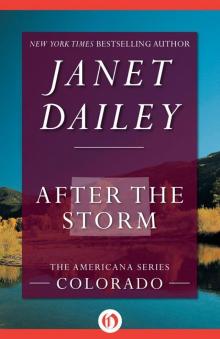 After the Storm (The Americana Series Book 6)
After the Storm (The Americana Series Book 6)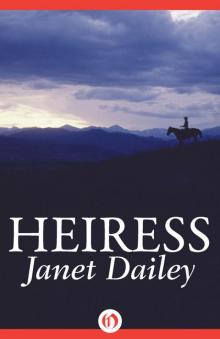 Heiress
Heiress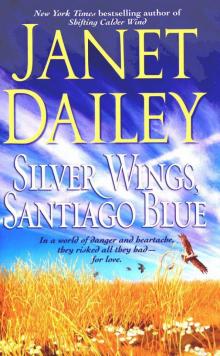 Silver Wings, Santiago Blue
Silver Wings, Santiago Blue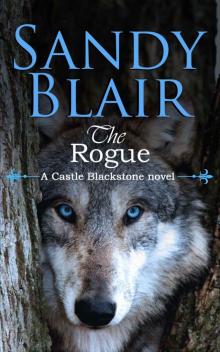 The Rogue
The Rogue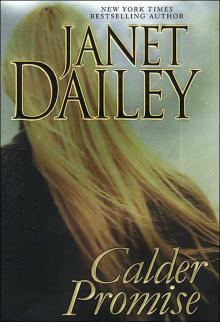 Calder Promise
Calder Promise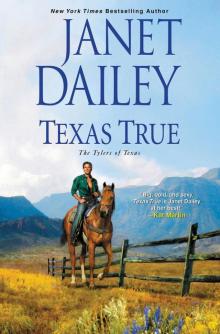 Texas True
Texas True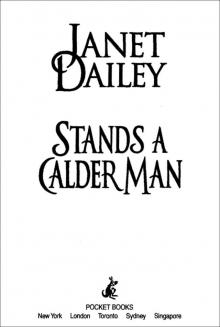 Stands a Calder Man
Stands a Calder Man Fiesta San Antonio
Fiesta San Antonio Fire and Ice
Fire and Ice For the Love of God
For the Love of God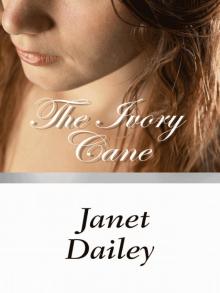 The Ivory Cane
The Ivory Cane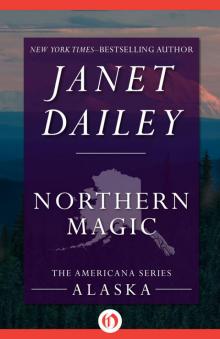 Northern Magic
Northern Magic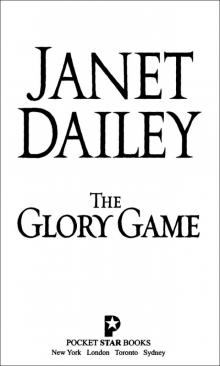 The Glory Game
The Glory Game The Homeplace
The Homeplace The Great Alone
The Great Alone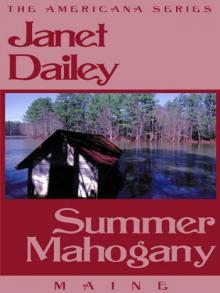 Summer Mahogany
Summer Mahogany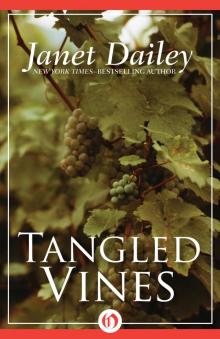 Tangled Vines
Tangled Vines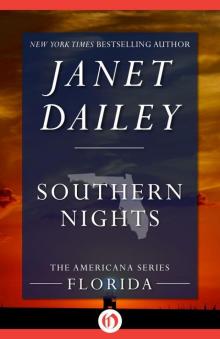 Southern Nights: Florida (The Americana Series Book 9)
Southern Nights: Florida (The Americana Series Book 9)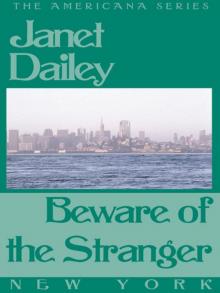 Beware of the Stranger
Beware of the Stranger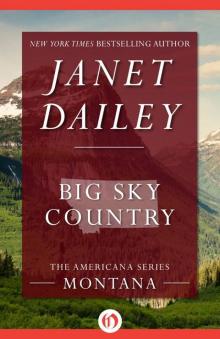 Big Sky Country: Montana (The Americana Series Book 26)
Big Sky Country: Montana (The Americana Series Book 26)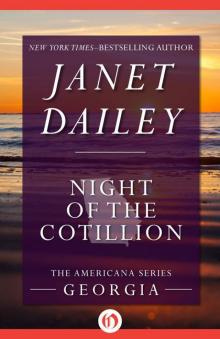 Night of the Cotillion: Georgia (The Americana Series Book 10)
Night of the Cotillion: Georgia (The Americana Series Book 10)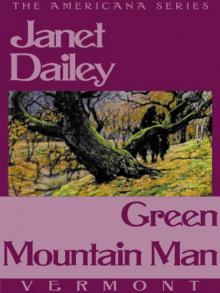 Green Mountain Man
Green Mountain Man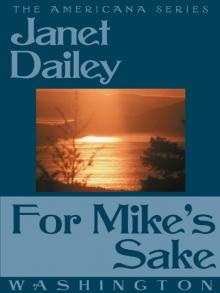 For Mike's Sake
For Mike's Sake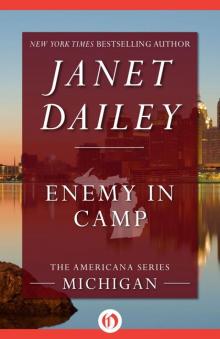 Enemy in Camp (The Americana Series Book 22)
Enemy in Camp (The Americana Series Book 22)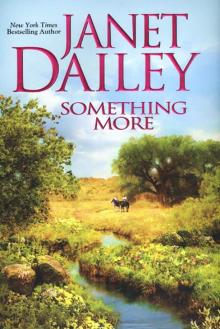 Something More
Something More Rivals
Rivals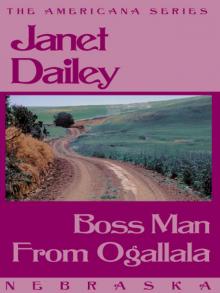 Boss Man from Ogallala
Boss Man from Ogallala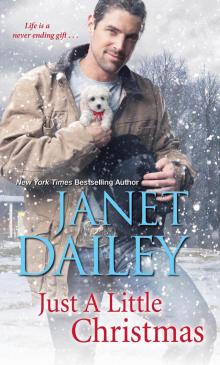 Just a Little Christmas
Just a Little Christmas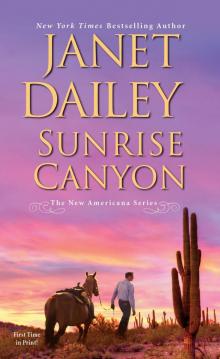 Sunrise Canyon
Sunrise Canyon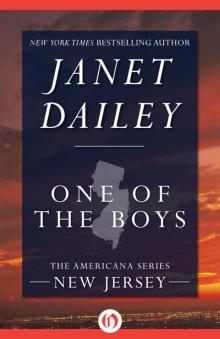 One of the Boys (New Jersey)
One of the Boys (New Jersey)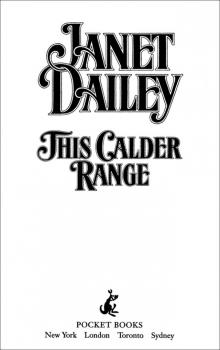 This Calder Range
This Calder Range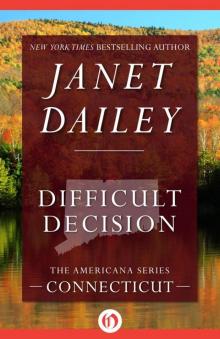 Difficult Decision: Connecticut (The Americana Series Book 7)
Difficult Decision: Connecticut (The Americana Series Book 7)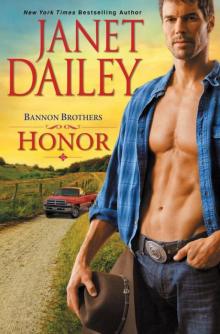 Honor
Honor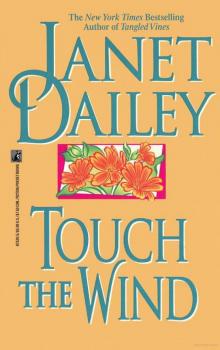 Touch the Wind
Touch the Wind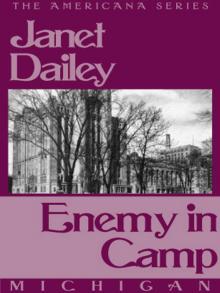 Enemy in Camp
Enemy in Camp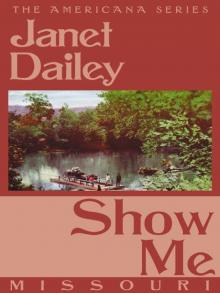 Show Me
Show Me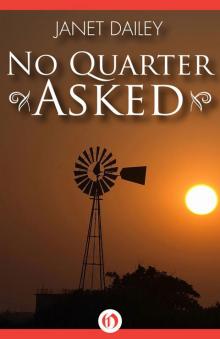 No Quarter Asked
No Quarter Asked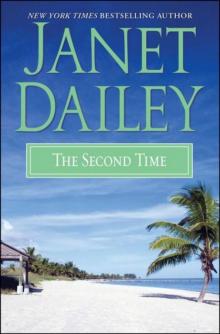 The Second Time
The Second Time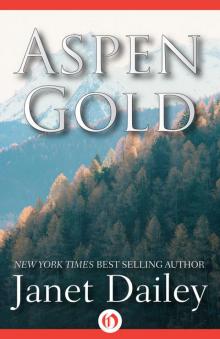 Aspen Gold
Aspen Gold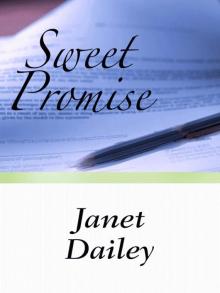 Sweet Promise
Sweet Promise Triumph
Triumph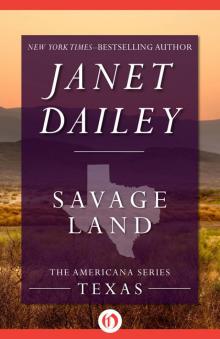 Savage Land
Savage Land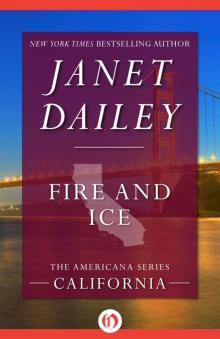 Fire and Ice (The Americana Series Book 5)
Fire and Ice (The Americana Series Book 5)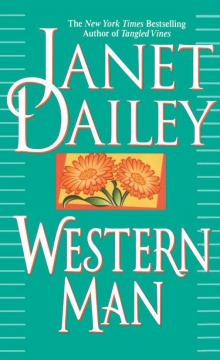 Western Man
Western Man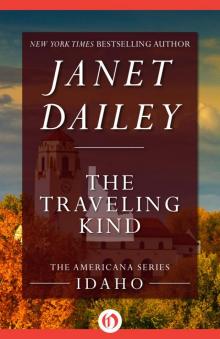 The Traveling Kind
The Traveling Kind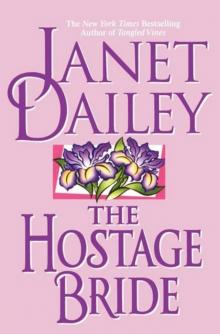 The Hostage Bride
The Hostage Bride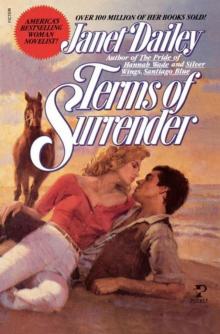 Terms of Surrender
Terms of Surrender Tidewater Lover
Tidewater Lover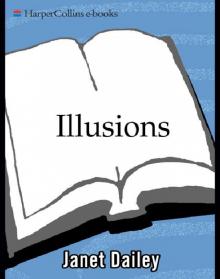 Illusions
Illusions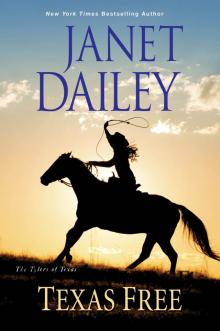 Texas Free
Texas Free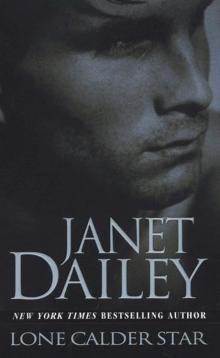 Lone Calder Star (Calder Saga Book 9)
Lone Calder Star (Calder Saga Book 9)